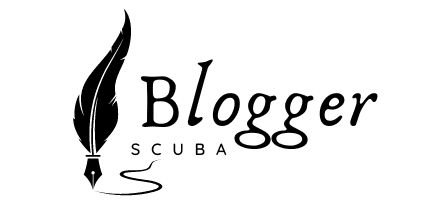What’s the Role of Peer Mentoring in Developing Young Talent in Team Sports?

Athletic success is often built on powerful relationships, whether between an athlete and his coach, or between teammates on the field. One such relationship that is gaining increasing interest is peer mentoring – a dynamic, supportive relationship between two athletes that can help improve skills, boost confidence and build resilient teams. In this article, we will delve into the role of peer mentoring in developing young talent in team sports.
The Concept of Peer Mentoring
Before we dive into the implications of peer mentoring in sports, let’s clarify what it means. Peer mentoring refers to an interpersonal relationship where an individual with more experience, knowledge, or skills (the mentor) assists another individual (the mentee) in personal or professional development. The mentor is not necessarily older, but they usually have more experience in a particular domain.
A voir aussi : What’s the Impact of Progressive Muscle Relaxation Techniques on Post-Competition Recovery?
In the context of sports, peer mentoring often takes place between athletes who are part of the same team or club. Mentoring is not a one-way relationship but a reciprocal interaction where both parties learn and grow from each other. It’s not about telling someone what to do, but about helping them find their own path to success.
Peer Mentoring and Skill Development
One of the most tangible benefits of a peer mentoring program is the enhancement of skills. In the world of team sports, this can be technical skills, such as how to execute a certain move, or tactical skills, like understanding game strategy.
A découvrir également : What Are the Best Practices for Managing Training and Competition Loads in Adolescent Athletes?
When it comes to skill development, coaches play a pivotal role, but peer mentors can offer a different perspective. They’re on the field, experiencing the same challenges and triumphs as their mentees. They can provide real-time advice, share their own experiences, and offer solutions that worked for them. In this sense, peer mentors don’t replace coaches, but they complement them, providing a supportive and enriching learning environment for young athletes.
Building Confidence and Resilience through Peer Mentoring
Another significant benefit of peer mentoring is its impact on the mentee’s confidence and resilience. By working with a peer mentor, young athletes can gain a better understanding of their abilities and potential. The mentor serves as a sounding board, offering constructive feedback and encouragement.
Moreover, peer mentors can help young athletes navigate the ups and downs of sports. From dealing with a disappointing loss to overcoming performance anxiety, mentors can share their experiences and coping strategies. This support can strengthen the mentee’s resilience, helping them bounce back from setbacks and stay motivated in the face of challenges.
Strengthening Team Dynamics through Peer Mentoring
The benefits of peer mentoring extend beyond individual athletes. When implemented effectively, a mentoring program can foster stronger team dynamics. Mentors help create a supportive and inclusive environment, where athletes feel comfortable expressing their concerns and sharing their successes.
A strong team is not just about having skilled athletes. It’s about having individuals who understand and respect each other, who can communicate effectively, and who are committed to a shared goal. Peer mentors can model these qualities, fostering a team spirit that enhances performance and overall enjoyment of the sport.
The Role of Coaches in Facilitating Peer Mentoring
Coaches have a critical role to play in facilitating effective peer mentoring programs. They can identify potential mentors, taking into account not just athletic skills, but also interpersonal skills and leadership potential. Coaches can provide training to mentors, equipping them with the tools they need to support their mentees effectively.
In addition, coaches can monitor the mentoring relationships, stepping in to provide guidance or address any issues if necessary. They can also create opportunities for peer mentoring to occur, such as through team-building activities or structured mentoring sessions.
In conclusion, peer mentoring is a powerful tool in the development of young talent in team sports. It can foster skill development, build confidence and resilience, strengthen team dynamics, and provide a supportive and enriching learning environment. With the right support from coaches, peer mentoring can elevate the athletic experience, translating into improved performance and greater enjoyment of the sport.
The Positive Effects of Peer Mentoring on Mental Health in Sports
As we further explore the role of peer mentoring in youth sports, it’s important to shed light on its positive effects on an athlete’s mental health. Many young athletes grapple with high pressure, performance anxiety, and fear of failure. These issues can drastically affect their mental health, their performance, and their overall enjoyment of the sport. Here, a peer mentor can play an instrumental role.
A peer mentor who has walked a similar path can empathize with these struggles and offer beneficial advice. They can help normalize these feelings, alleviating the fear of being alone or misunderstood. By sharing their own experiences and coping mechanisms, they can help the mentee manage stress, develop resilience, and maintain a positive mindset, even in the face of adversity.
In addition, a peer mentor can play a vital role in encouraging the young athlete to seek professional help when necessary. They can guide them in recognizing the early signs of mental health issues and underline the importance of addressing these concerns proactively.
Peer mentors can also help young athletes understand that mental health is as important as physical health in sports. This understanding can contribute to reducing the stigma around mental health issues in sports, fostering a team culture where athletes feel comfortable discussing these matters openly.
The Impact of Peer Mentoring on Career Goals in Sports
Peer mentoring is not merely about improving the current performance or mental health of a young athlete. It can also significantly impact their future career goals in sports. A peer mentor can serve as a role model, showcasing the possibilities of a successful career in sports, and inspiring the young athletes to strive for similar achievements.
Moreover, the peer mentorship can offer valuable guidance and insights into the intricacies of a sports career. A mentor can share their experiences about college recruitment, professional contracts, balancing sports with studies, and life after sports. This transparency can help a young athlete make informed decisions about their career trajectory and set realistic expectations.
In addition, a mentor can help a young athlete develop crucial skills needed to thrive in a sports career. These include strong communication skills, leadership, teamwork, discipline, and perseverance. By observing and learning from their peer mentors, young athletes can cultivate these skills, positioning themselves for future success in the sports world.
Conclusion
The overall impact of peer mentoring in team sports is profound. It not only enhances the technical and tactical skills of young athletes but also boosts their confidence, resilience, and mental health. Moreover, it positively influences the team culture, fostering a supportive, inclusive, and high-performing environment.
Beyond the immediate benefits, a mentoring program can also influence the career goals of young athletes, providing them with a realistic view of a sports career and helping them develop crucial skills for future success. With the right guidance from coaches, a well-structured peer mentorship program can significantly elevate the athletic journey of a young person.
As we continue to delve into sports coaching and development programs, it is clear that peer mentoring is no longer just a beneficial addition but a critical element in nurturing young talent in team sports. The benefits it offers are far-reaching, extending beyond the sports field to the personal and professional lives of young athletes. The role of peer mentoring, thus, remains central in cultivating the champions of tomorrow.
